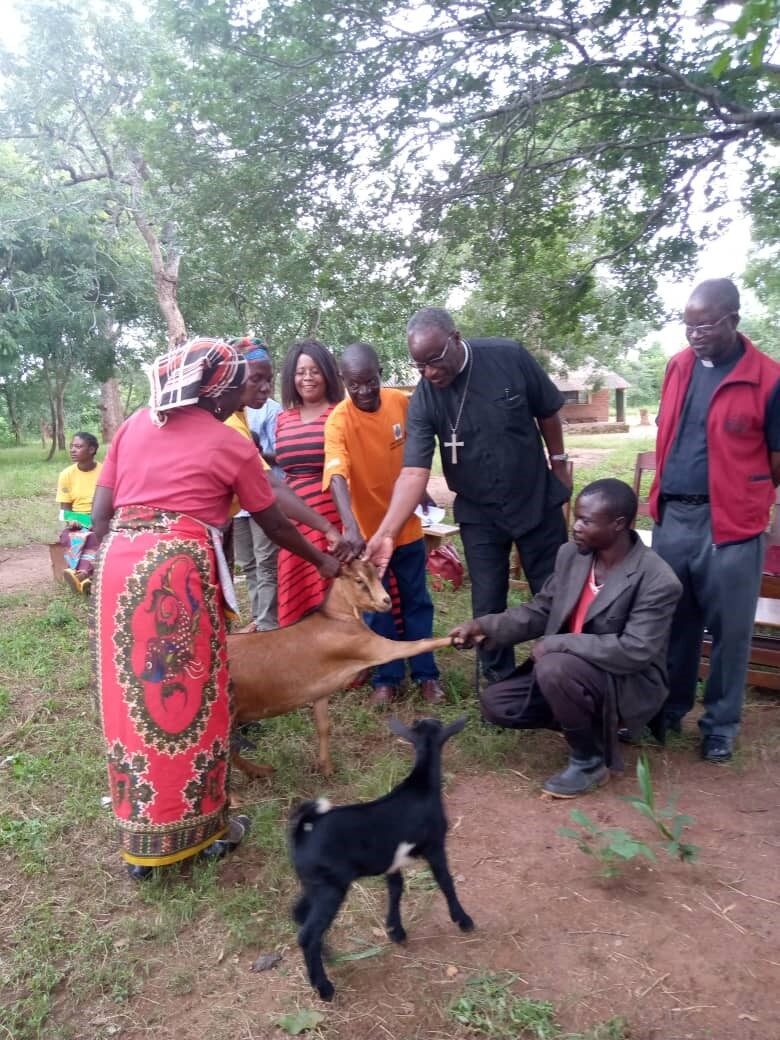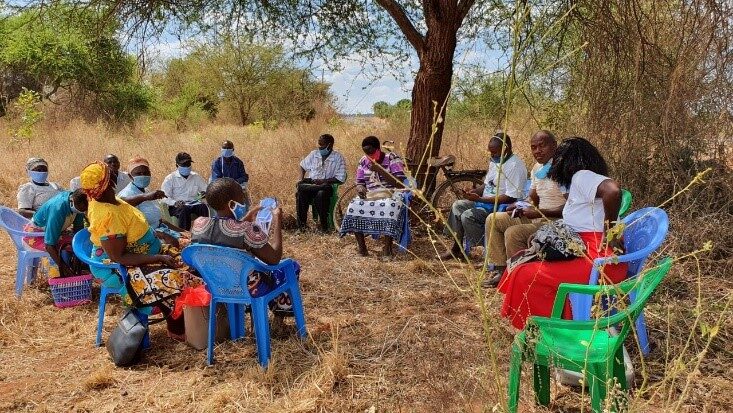ABM Archive Website
THIS WEBSITE CONTAINS ARCHIVE MATERIALS FOR HISTORICAL REFERENCE ONLY
For up-to-date information, including our latest appeals, news, and resources, please visit our current website.
2020 ACHIEVEMENTS IN ABM’S WOMEN’s EMPOWERMENT PROGRAM
![]() As Kenyan farmer, Mueni Kikolya, reflected on how life has changed for women like her, she explained how her participation in the program supported by ABM and our Kenyan partner, ADSE, better enables her to provide for her family:
As Kenyan farmer, Mueni Kikolya, reflected on how life has changed for women like her, she explained how her participation in the program supported by ABM and our Kenyan partner, ADSE, better enables her to provide for her family:
“Before ADSE came to Kiangini, we used to depend on rainfall for our crops to flourish. The excavation of Kiangini disabled farm pond by our group changed our livelihood completely. The first round after we dug the pond, our group planted kales, coriander and capsicum.
We were able to make total sales of kales at 5350 Kenya shillings (about $66), coriander at 1400 shillings ($18) and capsicum at 4600 shillings ($58). This is a good income from one planting, especially when new irrigation methods allow many more plantings than previously possible.”
A key aim of ABM’s community development work is to support our partners to achieve gender equality and the empowerment of women. This story reports on key results of ABM’s Women’s Empowerment Program across all ABM’s community development programs across Africa, South East Asia and the Pacific.
Women and girls comprised around two thirds of all participants in the program run by ABM partner ADSE in Kenya in 2020. They benefitted through improved incomes, farming skills, and opportunities to plan group activities.
And this pattern of high female participation was common in all ABM’s programs.

Women in Eastern Zambia experienced increases in their livelihoods due to the program implemented by ABM’s partner, ZACOP © ZACOP. Used with permission.
In 2020, in all ABM-supported projects, women comprised…
- 50% of people who gained increased access to basic toilets
- 54% of people who gained increased access to safe water
- 57% of people who gained access to financial services
- 60% of people trained in literacy and of literacy teachers trained
- 62% of people who received training in climate change awareness or resilience
- 66% of people who gained access to new agricultural technologies
- 67% of people supported in value-adding or other income generation activities…and
- 77% of people gaining increased incomes
Equally important is the fact that in gender awareness and child protection awareness sessions, the proportion of participants who were male rose between 2019 and 2020, possibly reflecting increasing acceptance by communities that these topics are “everybody’s business” not just “women’s business”.
In addition, most ABM partners ran gender awareness sessions during 2020. In fact, messaging about gender violence and gender equity reached more than 48,000 people – a much larger number than in previous years.
ABM’s partners reported a range of positive program impacts for women.
In Kenya, ADSE reported that newly constructed water supply facilities enabled women to access water closer to them, saving them time for other activities. Newly established savings and loaning groups improved women’s access to money.
In many countries where ABM works, female membership of committees gave women new decision-making power. In Myanmar, women joined WASH committees for the first time. Similarly, in Vanuatu, ACOM-V aimed for an “equal number of men and women in all committees”. Although this aim was not achieved, with just 22 out of 54 committee members in 2020 being women, this nonetheless represented an increase in the participation of women in community life and community-level planning compared with previous years.

Women are increasingly participating in committees such as this one in Kenya, making decisions that affect their communities © ADSE. Used with permission.
In the Philippines, out of 13 Community-based organisations built through VIMROD’s program, nine had elevated women to key positions such as chair and vice-chair. VIMROD also reported unexpected impacts. A VIMROD survey in July 2020 found activities introduced by the program had led to a reduction in gambling and drinking amongst women participants.
In Zambia, ZACOP reported than Men’s Engagement Networks had fostered changes in men’s behaviour around gender-based violence. Males’ participation in the project had increased and men were becoming more willing to seek counselling services from the counselling centres.
In Papua New Guinea, Anglicare PNG integrated gender equity messaging into its COVID-19 awareness-raising sessions and conducted stand-alone gender awareness trainings in all five dioceses. Anglicare noted that its adult literacy program had high rates of women’s participation and men saw women playing an active role in classes and other project activities. In some communities, Anglicare observed, this change was leading to wider impacts such as more women being invited to read the bible out aloud in mass, and more women participating in community committees.
Amongst ABM church partner agencies, women continued to fill most senior leadership positions. In fact, women filled one or both of the top two positions in ADSE (Kenya), ZACOP (Zambia), CPM (Myanmar), VIMROD and ECARE (Philippines) and Anglicare (PNG).
ABM also promoted awareness of prevention of sexual exploitation, abuse and harassment (PSEAH) among its partners. We did this largely through running online workshops, surveying our partners about PSEAH, one-on-one discussions, an article in our December 2019 Partner Newsletter, and reviewing our partners’ PSEAH guidelines and mechanisms through a Safeguarding Risk Assessment Tool.
ABM thanks our partners for their work in creating new opportunities for women. And we thank our supporters for helping bring our partners’ dreams to fruition.
In 2020 ABM received support from the Australian Government through the Australian NGO Cooperation Program (ANCP) and the Papua New Guinea-Australia Partnership.


